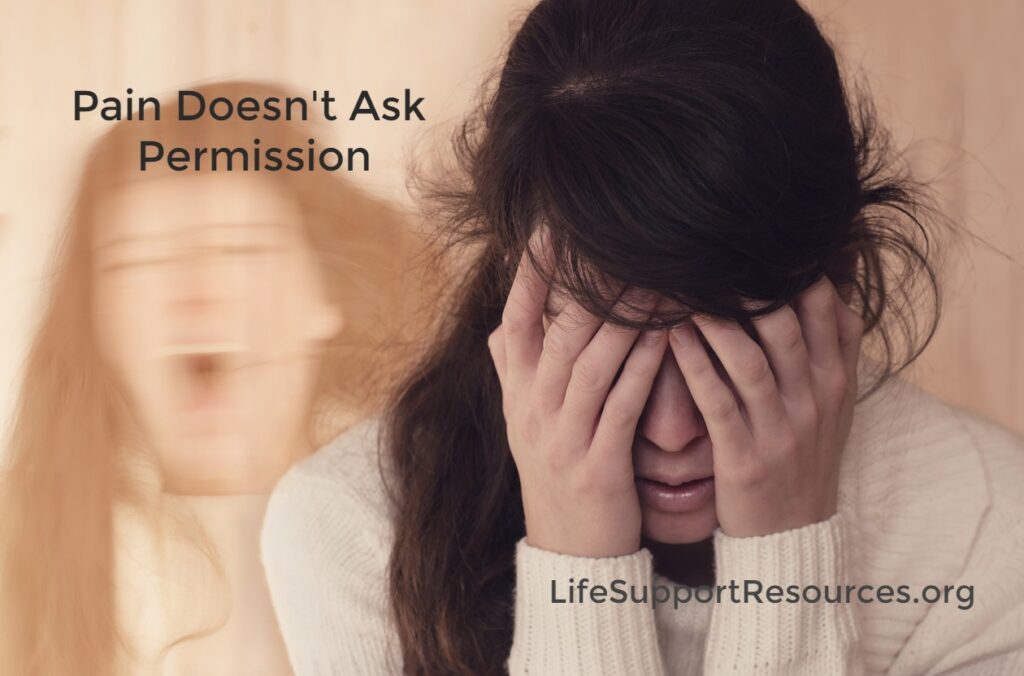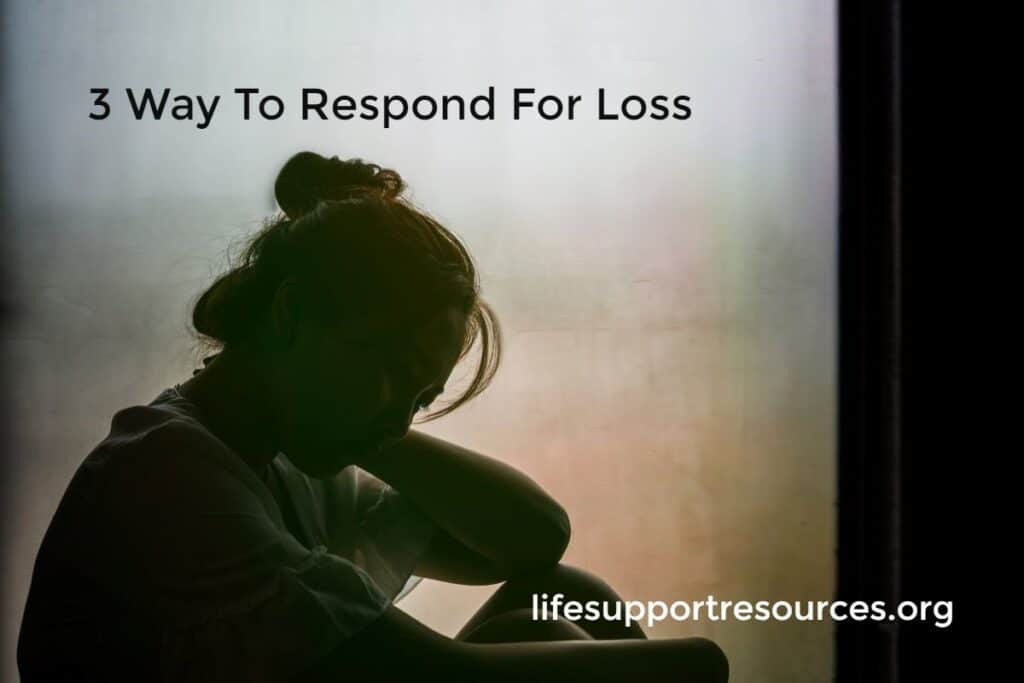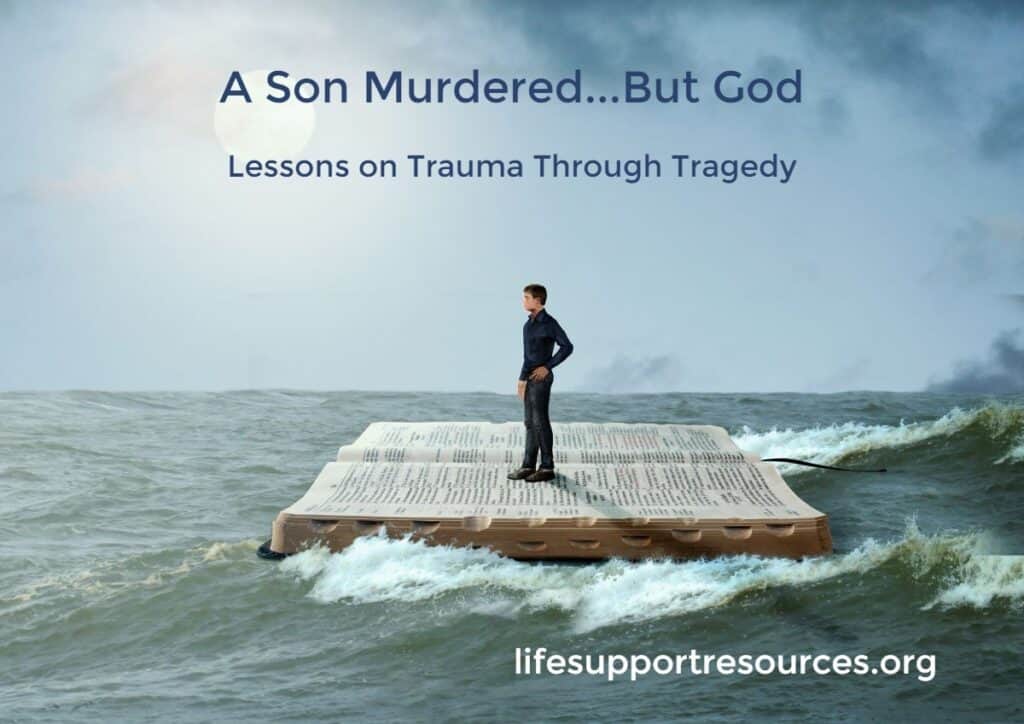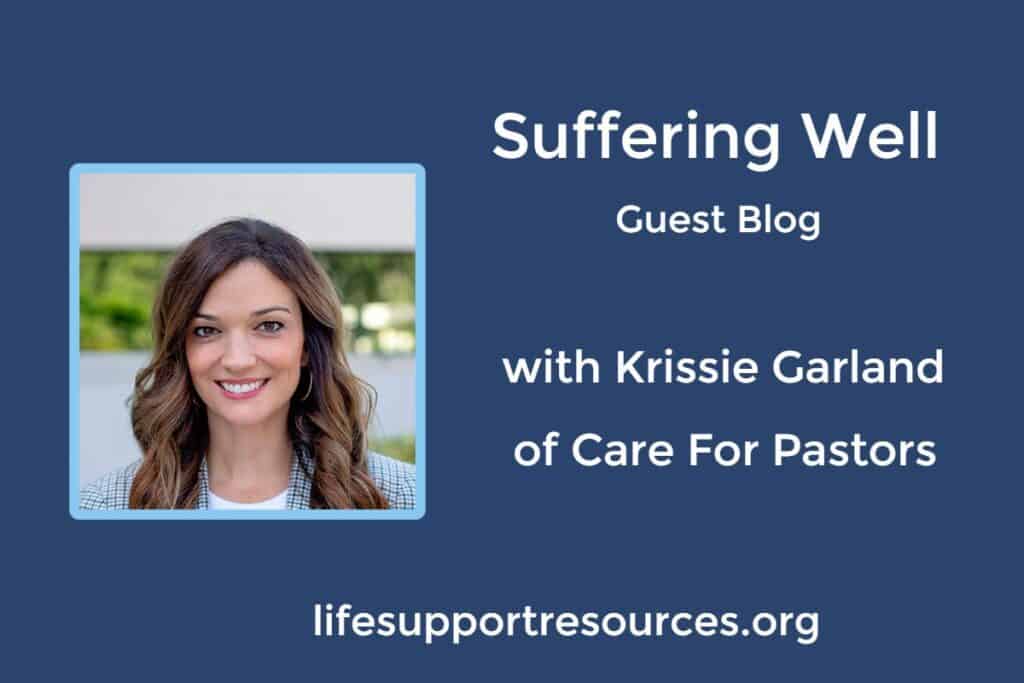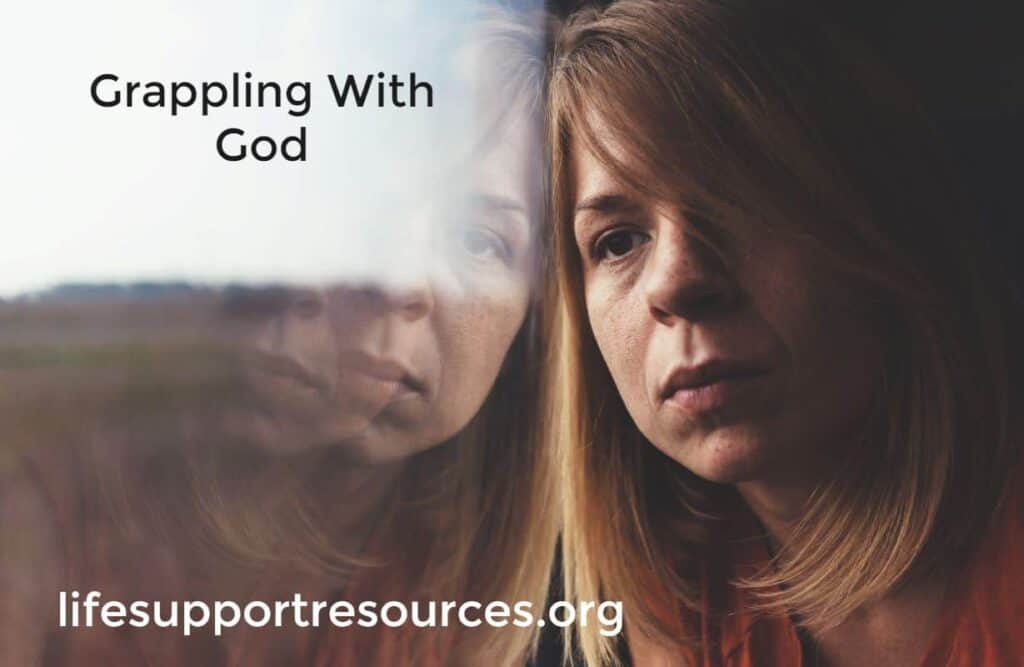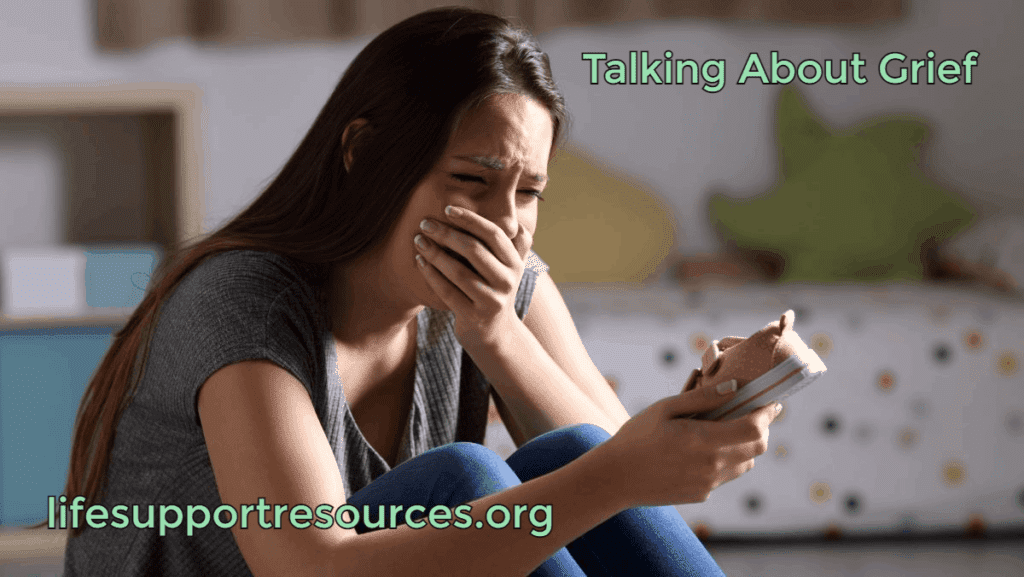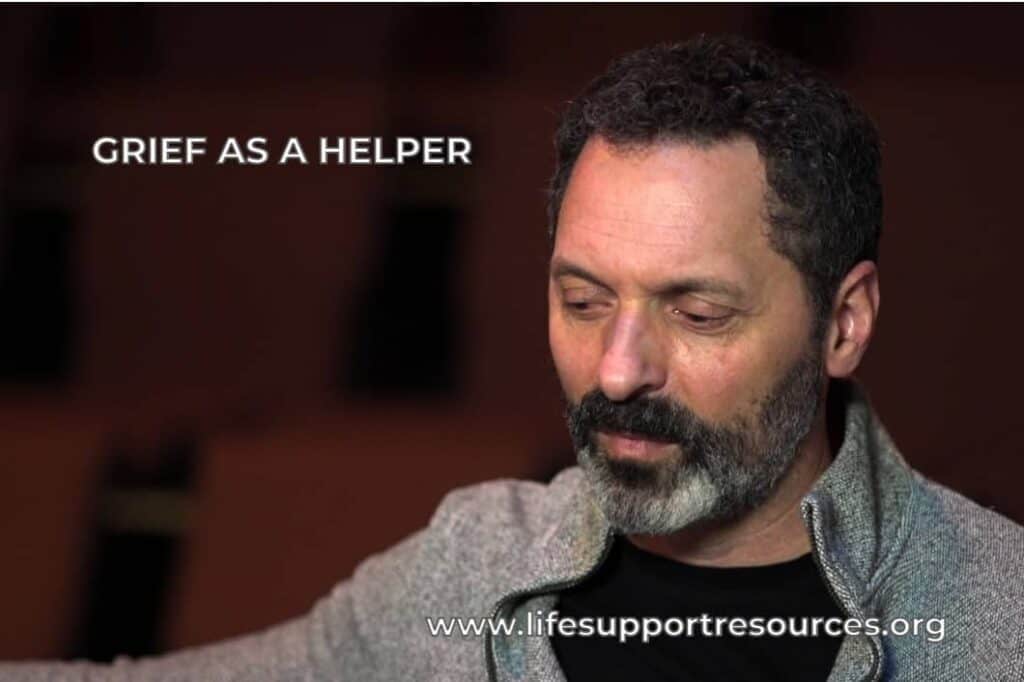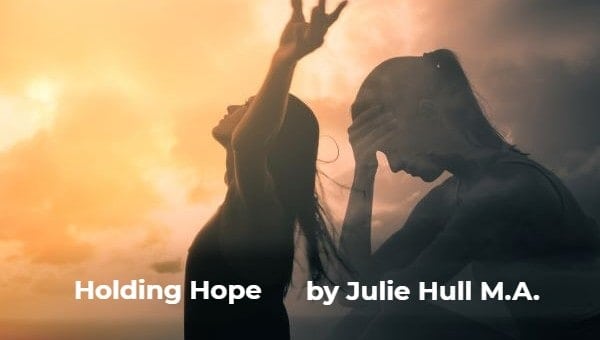Pain Doesn’t Ask Permission
Pain doesn’t ask Permission:
But we can lift each other up through it
Counselor Julie Hull is a mental health professional who serves as an advisor and contributor for LifeSupport. At the beginning of the covid pandemic in the Spring of 2020, Julie wrote this article that will always be helpful for those who are struggling with life or wrestling with God.
Compounded Grief
We don’t always experience life the way we think we should, or the way we expect it should be. Each one of us at one time may have walked through the valley of the shadow of death. Many of the people and families we sit next to in church are hurting and feeling lonely and quite possibly could be struggling with depression and anxiety.
Especially now, I know I have seen an increase in my counseling practice for extra support around the community grief and loss of the Pandemic that we all are feeling to some extent. We have compounded grief ourselves and many of us are serving those who have trauma or loss and that is on their minds on a daily basis. It can be overwhelming.
All of us are in different places in our lives and different seasons, and if you are currently in a season of pain this may be hard to understand or even see right now, but God has shown me that there can be joy and even purpose in our pain. I became a widow when my youngest son was 12, my husband died from a rare form of lung cancer. That has been a few years now and I am finding my way along in my own story and it takes time and it is teaching me how to stand with others in pain.
The Journey Into Pain
I found myself once again in that hard place, last year when my sister died. Our church and our family had been praying for a miracle and at the same time holding the information that the recent diagnosis was stage 4 cancer. Her medical prognosis was not favorable and she had limited treatment options.
I was the one who had to deliver that news to her when she woke up from surgery, it was gut-‐wrenching for me and yet I was very calm and she was calm after hearing this very hard news. That can only be explained because of the Hope we both have in Jesus Christ.
I love how one author frames pain without sugar coating it but by inviting hope into the pain, “we must encourage one another in the assurance that, however deep the pain surges, Christ loves us and has overcome (John 16:33). God didn’t cause the pain we experience but he certainly has a plan for us as we journey through it”.
I believe God hates that we have to experience death and heartache but He is with us. I love the verse in Psalm 34:18 that says, the Lord is near to the heartbroken and he saves those who are crushed in spirit.”
Looking back at the past five years apart from doing life without the love of my life, Ken, and watching our son Sam grow up, as he remembers his Dad’s life only through videos and pictures as an 11-‐ year-‐old. I am overcome just thinking about where we have been. I am at the same time over joyed at how we have never walked alone. We recently were looking at pictures and we came across one taken a few days before Ken left this world, and we are all laughing and crowding each other out of Ken’s hospital bed in our living room and I look back now and wonder how that was even possible to laugh and smile at such a time. And then God reminds me and I see how it was and how it still is… it’s truly the peace of God that surpasses ALL understanding. I am still in awe of Gods power in such darkness.
Hold Onto The Truth
So I encourage each of you if you are helping someone who is going through something hard right now—or if you yourself are suffering to hold on to Jesus, cling tightly to the word and surround yourself with people that will speak life over you.
Friend, you are so loved. You are enough. You are never alone. God’s word reminds us in Zephaniah 3:17, “The Lord your God is with you, he is mighty to save. He will take great delight in you, he will quiet you with his love. He will rejoice over you with singing.”
My prayer for the families we serve in our Churches and for all those who God brings into my path is that God would help us all to see the
Julie Hull holds a Master of Clinical Christian Counseling and is a Licensed Pastoral Counselor. She is the owner of Renewing Hope Counseling Resources in Burnsville, MN where she specializes in helping clients who are experiencing loss, grief and life transitions. Working with people to create sustainable self-care practices while walking through a new, difficult or unwanted change in life. She believes the integration of emotional, physical and spiritual health must be addressed in order to move toward healing. Learn more about Julie and her practice at Renewing Hope.

